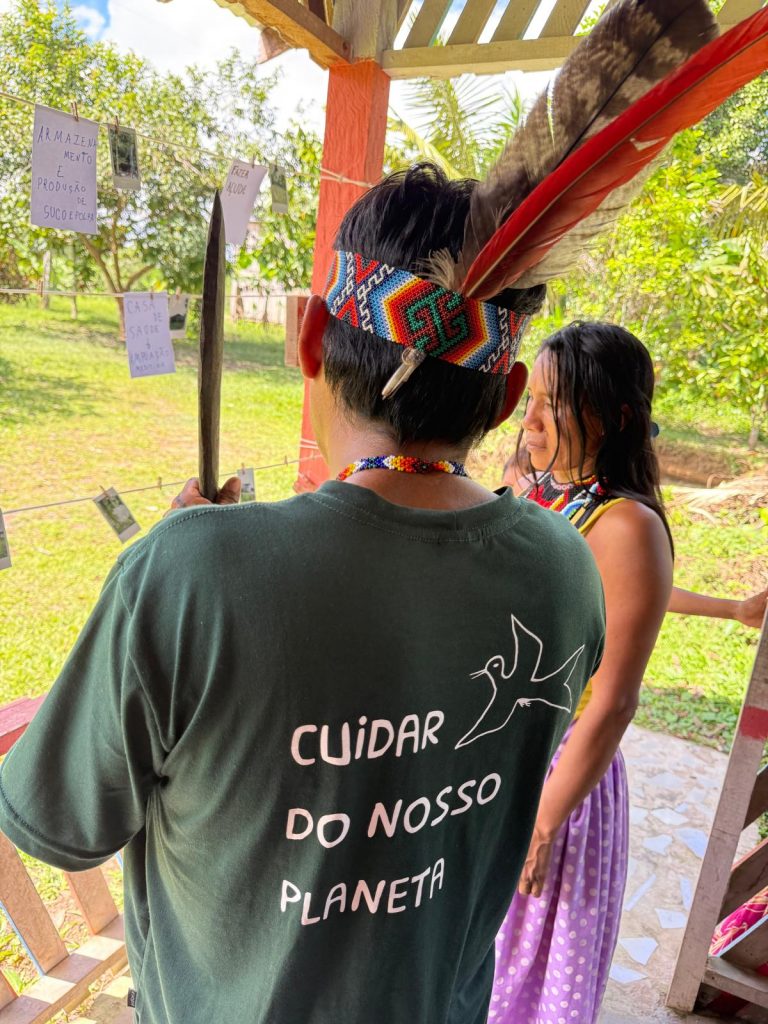Brazil, characterized as Indigenous territory, harbours 60.3% of the Amazon Forest and hosts 385 Indigenous groups renowned for their ancestral expertise in navigating climate disaster risks. Nonetheless, Brazilian climate legislation far from recognises the vital role of Indigenous ontologies and knowledge in climate response. This research endeavours to collaboratively formulate climate mitigation and adaptation strategies and policies guided by the ontologies and ancestral knowledge of Brazilian Amazon Indigenous communities. Embracing decolonizing methodologies, our study translates research findings into tangible interventions for addressing climate change in Brazil. Guided by four Indigenous ethnicities (Yawanawa, Noke Koi Katukina, Shanenawa, and Huni Kuin), our inclusive approach encompasses the engagement of local communities, practitioners, scholars, policymakers, and governmental and non-governmental entities. By incorporating Indigenous practices such as Yarning mapping, storytelling, sharing circles, along with collaborative workshops, we seek to enhance Brazilian climate governance by empowering Indigenous insights and fostering global collaboration for impactful climate action.
The essential role of the humanities in envisioning and shaping future climate change policy development
The BA-funded research project, “Amazon Indigenous Wisdom: Shaping Climate Solutions in Brazil,” highlights the essential role of the humanities in envisioning and shaping future climate change policy development. The humanities provide a distinctive perspective that enables the exploration and projection of ideas about the future, particularly concerning climate change and environmental governance. This research emphasizes the incorporation of the ontologies and knowledge values of Amazon Indigenous communities into climate change mitigation and adaptation policies. This approach not only honours and maintains Indigenous wisdom but also critiques traditional Western-centric methodologies, fostering a more inclusive and pluralistic perspective on global environmental change.
By co-designing climate actions with Indigenous communities, this project highlights how humanities-based methodologies, including storytelling, cultural immersion, and participatory research, can yield innovative and sustainable climate change policy solutions. These methodologies enhance the comprehension of the ethical, spiritual, and cultural aspects of ancestral knowledge and climate resilience, which are frequently neglected in conventional policy frameworks. The role of the humanities in this project is vital for bridging the divide between various knowledge systems and promoting collaborative dialogue among Indigenous communities, policymakers, and scholars. This dialogue is crucial for formulating policies that are both effective and culturally sensitive and equitable.
This project offers an opportunity to demonstrate how humanities-driven research can influence future climate change policies, ensuring they are based on diverse cultural perspectives, ancestral knowledge and ethical considerations. We anticipate contributing to this significant discussion and examining how the humanities can persist in inspiring and informing our shared future.
BA-funded research project. ISPF ODA Challenge-Oriented Research Grants 2024. Start date: 30/07/2024.

